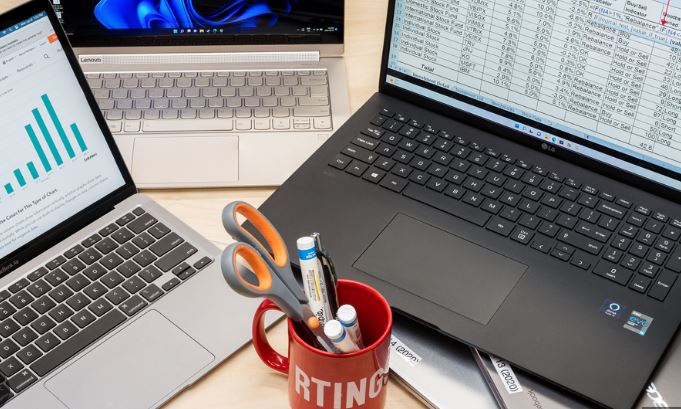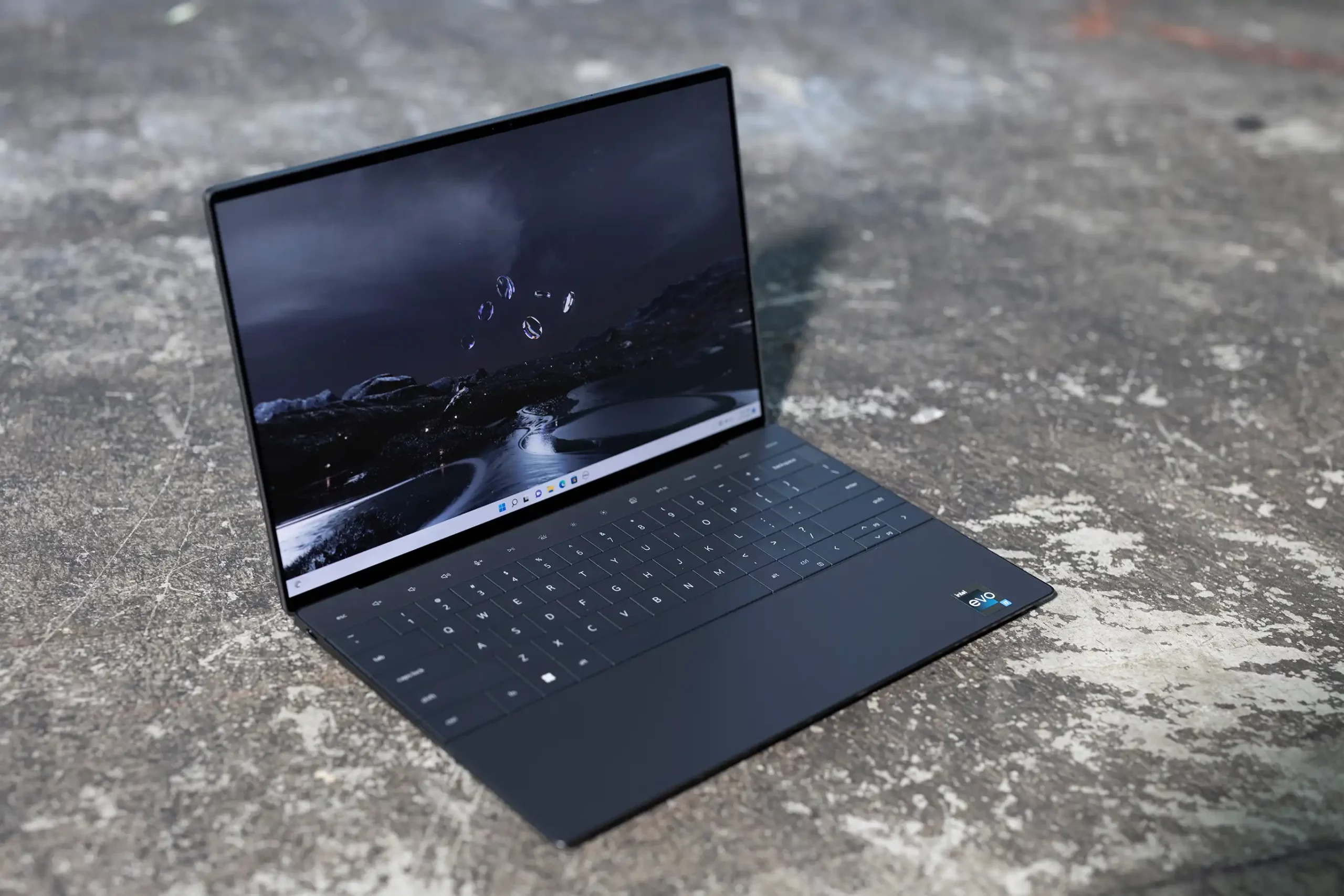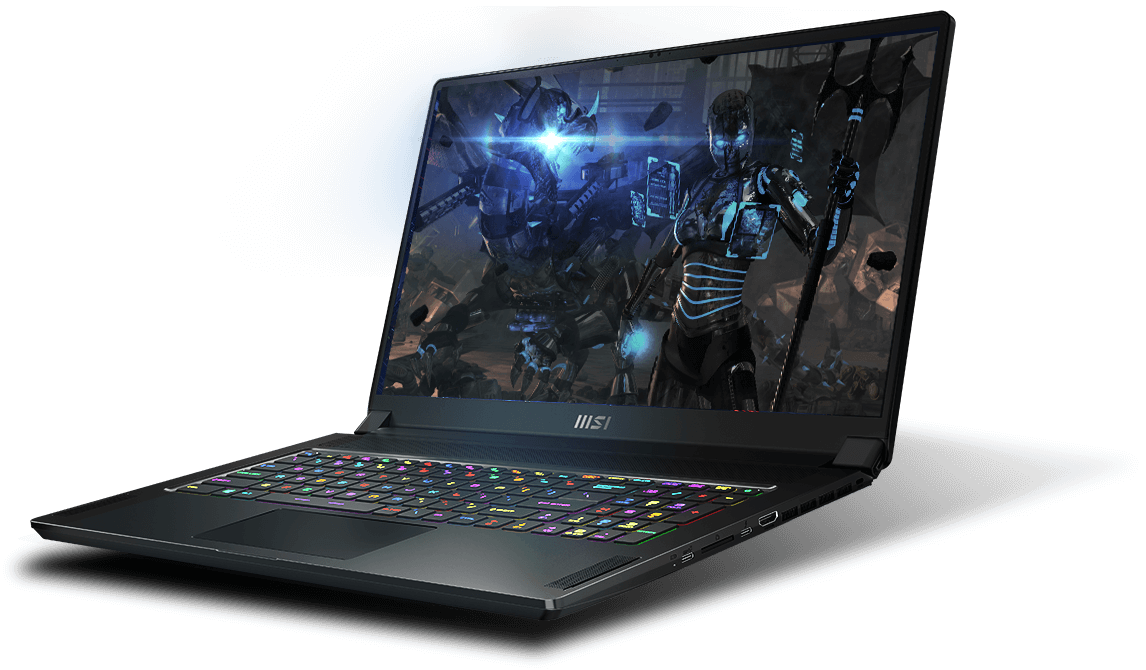In today’s fast-paced world, having a reliable and efficient laptop is crucial for work. With so many options available in the market, it can be overwhelming to choose the perfect laptop that meets all your needs. This comprehensive guide will provide you with all the essential factors to consider when selecting a laptop for work, ensuring that you make an informed decision.

Choosing the Perfect Laptop for Work
1. Determine your work requirements:
Before diving into the vast array of laptops available, it’s essential to identify your work requirements. Consider the nature of your work and the tasks you’ll be performing regularly. Are you working with resource-intensive software applications like video editing or graphic design? Or do you need a laptop mainly for word processing and web browsing? Understanding your work requirements will help you narrow down the available options.
2. Choose the right operating system:
The operating system (OS) is a crucial factor to consider when choosing a laptop. The most widely used operating systems are Windows, macOS, and Linux. Windows is the go-to choice for many professionals due to its familiarity, extensive software compatibility, and flexibility. macOS, on the other hand, is known for its stability, sleek design, and seamless integration with other Apple devices. Linux is favored by tech-savvy professionals who seek customization options and open-source software compatibility.
3. Consider the processor:
The processor is the brain of your laptop and determines its performance capabilities. For general work tasks like web browsing and word processing, a dual-core processor should suffice. However, if you’re dealing with more demanding tasks like video editing or coding, opt for a quad-core or higher processor for better multitasking and faster data processing.
4. Pay attention to RAM:
Random Access Memory (RAM) plays a vital role in multitasking and overall system performance. For typical work tasks, 8GB of RAM is generally sufficient. However, if your work involves heavy data processing or resource-intensive applications, consider getting a laptop with 16GB or more for smoother performance.
5. Storage options:
There are two primary types of storage options: traditional hard disk drives (HDD) and solid-state drives (SSD). HDDs provide larger storage capacities at a lower cost but tend to be slower in terms of data access. SSDs, on the other hand, offer faster performance, quicker boot times, and better durability. If speed is a priority, choose a laptop with an SSD. For more storage space, consider opting for a hybrid solution or an external hard drive.
6. Display size and quality:
Consider the display size and quality based on your specific work needs. If you’re constantly on the go, a smaller and lighter laptop with a display size of 13 to 15 inches might be more suitable. If you work with graphics, design, or video editing, a larger display with high resolution and color accuracy is essential. Additionally, ensure that the laptop offers ergonomic features like an anti-glare screen and adjustable brightness levels for comfortable long-term use.
7. Battery life:
When selecting a laptop for work, battery life is a critical consideration, especially if you frequently work outdoors or travel frequently. Look for laptops that offer a minimum of 8-10 hours of battery life to ensure uninterrupted productivity throughout the day. Keep in mind that battery life can vary depending on usage and performance settings, so consider the trade-off between performance and battery life.
8. Connectivity and ports:
Evaluate the connectivity options and ports available on the laptop. Ensure that it has an adequate number of USB ports, including USB Type-C for future compatibility. Other useful ports may include an HDMI port, an SD card slot, and an audio jack. Additionally, consider laptops with built-in Wi-Fi 6 and Bluetooth capabilities for faster wireless connectivity.
Conclusion:
Finding the perfect laptop for work requires careful consideration of your specific work requirements, operating system preferences, processor performance, RAM capacity, storage options, display size and quality, battery life, and connectivity features. By taking into account these essential factors, you can make an informed decision and choose a laptop that will enhance your productivity and meet your work needs effectively. Remember to also compare prices, read reviews, and consider warranties to ensure the best value for your investment.




